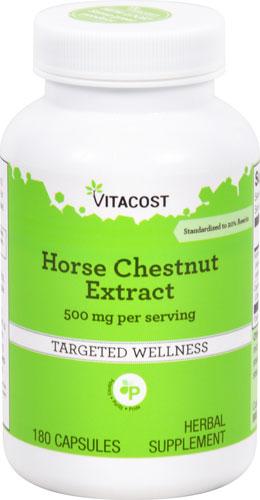[vc_row][vc_column][vc_column_text]Chestnuts may not be the most popular holiday food, but they are deeply entrenched in holiday tradition (and song!). Learn more about the reasons behind the traditions plus facts about chestnut nutrition, shopping, storage and more.

Chestnut Nutrition and Holiday History
Roasted chestnuts are popular during the holiday season and have been around for centuries. They’re in season from September to December, and once roasted, the flavor transforms from bitter to sweet, smoky and buttery making them a warm and comforting snack. In America, chestnuts were extremely popular in the 18
th and 19
th centuries due to the plethora of chestnut trees on the east coast. This meant cranking out 20 million pounds of chestnuts each year, making them extremely accessible and affordable.
The history goes back even further, all the way to the 4
th century with Saint Martin, a transient Catholic saint stationed in Rome. Amid a cold, bitter wintertime, he cut his jacket in half to share with a beggar. This act became known as "Dividing of the Cloak" and is celebrated on Martinstag or “Feast of Saint Martin.” The tradition of handing out chestnuts on Martinstag has evolved into a Christmas activity, where acts of kindness also play a significant role.
In cities like Baltimore, Philadelphia, New York and Boston during the 18
th and 19
th century, the streets were perfumed with the essence of Christmas as train cars laden with hundreds of thousands of pounds of chestnuts supplied street vendors found on nearly every corner, offering bags of nuts roasted over charcoal. This aromatic tradition persisted for over a century, defining the spirit of Christmas across America. Unfortunately, in the early 1900s, a fungus killed 3.5 billion of the country's 4 billion trees, zapping the supply and affordability. But fear not; since then, many trees have been re-planted, and the US has brought supplies back up through importing.
Chestnut nutrition content
Why include chestnuts in your holiday feast this season? One cup of roasted chestnuts provides 25% daily value of potassium, 40-60% daily value of vitamin C, five grams of protein, seven grams of fiber and 35% daily value of vitamin B6. The benefits of chestnuts include supporting
heart health, promoting
gut health and boosting
immunity. Plus, its fiber and protein content make it a satiating grab that will keep you full longer, giving you the craving control and sustained energy most of us desire during the season.
Chestnuts are unique and unlike other nuts. While most nuts are high in healthy fats, chestnuts are surprisingly low in fat. For example, in 100 grams (or about 2/3 cup) of
cashews, you can expect about 44 grams of fat. In
peanuts, 49 grams and in
hazelnuts, 61 grams. For 100 grams of chestnuts, you can expect about
2 grams of fat. This means it makes for a great lower-calorie snack or addition to dishes.
Shopping for and storing chestnuts
You can find raw chestnuts at many grocery stores during the holiday season. Look for firm, glossy shells for maximum freshness. Choose nuts that do not rattle when shaken; this is a sign they have dried out. Cut the whole nuts in half crosswise to shell them then blanch in boiling water for 8 minutes.
Blanching includes putting vegetables, or in this case nuts, into boiling water for a short amount of time, then putting them immediately into ice water. This stops certain enzymatic reactions to preserve flavor, texture and color.To store fresh chestnuts, keep them in a grocery bag for up to two months. You can sweeten them by holding them at room temperature for two days—causing the starches to convert to sugars. After they have been boiled, refrigerate and consume within a few weeks. For more extended storage, keep in the freezer for six to 12 months. Be sure to use them immediately after thawing or they might become mushy.
How to prepare chestnuts
While having roasted chestnuts on an open fire is a fun, cozy activity, it’s definitely not the only way to enjoy these holiday jewels. Adding them to a bowl of popcorn, trail mix, crumbled onto salads and serving with warm vegetables can bring forth a nutty, buttery flavor. Chestnuts can be eaten raw, though it is not common due it’s mealy texture and tannic acid content, which can cause stomach irritation for some.
As you prepare for the holidays ahead, why not bring back this once long-standing tradition? In the spirit of Martinstag or Christmas, maybe even roast some chestnuts for your friends and neighbors. No matter how you celebrate, let togetherness, comfort and joy be at the center. For more healthier holiday recipes, visit
Kroger’s Christmas and holiday recipe collections or search within
The Upside blog.[/vc_column_text][/vc_column][/vc_row][vc_row][vc_column][vc_text_separator title="Featured Products" border_width="2"][vc_row_inner equal_height="yes" content_placement="middle" gap="35"][vc_column_inner width="1/3"][vc_single_image image="171611" img_size="full" alignment="center" onclick="custom_link" img_link_target="_blank" css=".vc_custom_1703265271270{padding-right: 7% !important;padding-left: 7% !important;}" link="https://www.vitacost.com/mauna-loa-macadamias-gluten-free-non-gmo-dry-roasted-nuts"][/vc_column_inner][vc_column_inner width="1/3"][vc_single_image image="171612" img_size="full" alignment="center" onclick="custom_link" img_link_target="_blank" css=".vc_custom_1703265289521{padding-right: 7% !important;padding-left: 7% !important;}" link="https://www.vitacost.com/simple-truth-nut-butter-bites-cake-batter-cashew"][/vc_column_inner][vc_column_inner width="1/3"][vc_single_image image="171613" img_size="full" alignment="center" onclick="custom_link" img_link_target="_blank" css=".vc_custom_1703265320648{padding-right: 7% !important;padding-left: 7% !important;}" link="https://www.vitacost.com/vitacost-certified-organic-dark-chocolate-almonds-non-gmo-kosher"][/vc_column_inner][/vc_row_inner][/vc_column][/vc_row]





